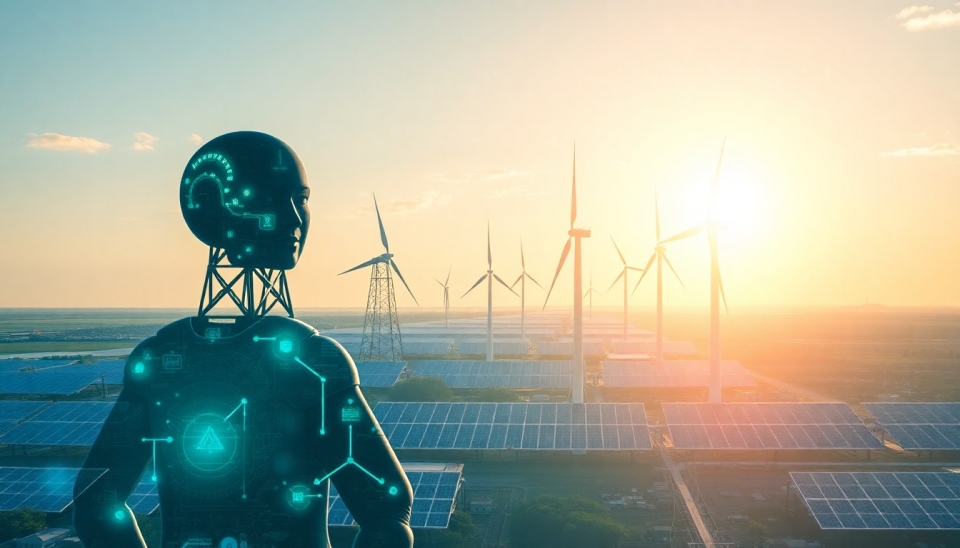
As we usher in 2025, the confluence of artificial intelligence and increasing energy demand is driving a significant wave of investment into climate technology. Investors are increasingly focused on innovative solutions that leverage AI to enhance energy efficiency and reduce carbon emissions, responding to rapidly changing market dynamics and the urgent need for sustainable practices in various industries.
Recent discussions within financial circles indicate that the appetite for climate-focused investments has never been higher. This comes as governments around the world embark on ambitious agendas aimed at combating climate change, leading to a fertile ground for startups and established firms alike to diversify their portfolios with cutting-edge technologies. Major sectors benefitting from this trend include renewable energy, electric transportation, and smart technologies designed to optimize energy use.
At the forefront of this movement are companies that utilize AI-driven analytics to better understand energy consumption patterns and enhance operational efficiencies. These technologies not only promise to reduce waste but also help organizations predict energy needs, thus aligning their consumption with availability and cost-effectiveness. Furthermore, the integration of AI allows for advancements in energy storage solutions, critical for harnessing the intermittent nature of renewable sources like solar and wind.
Venture capitalists and institutional investors are pouring funds into startups that provide AI-enabled climate solutions, with numbers reflecting a marked increase over previous years. Notably, investment in this sector is buoyed by a growing recognition of the financial viability of sustainability initiatives. Reports suggest that returns on investments in clean technologies are steadily becoming comparable, if not superior, to traditional sectors plagued by volatility.
Moreover, recent advancements in machine learning and data analysis are not just aiding in investment strategies but are fundamentally transforming operational frameworks across industries. For instance, AI algorithms are being used to train models that predict energy outputs from renewable sources, optimize logistics for electric vehicle fleets, and streamline operations to reduce overall energy costs for businesses. This innovation cascade is setting the stage for a more resilient energy infrastructure as pressures on global energy systems mount.
Looking ahead, experts anticipate that the integration of AI in energy systems will lead to the emergence of 'smart grids'—energy networks that automatically manage energy flows from all generation sources. This evolution is expected to support a major shift toward decentralized energy solutions, placing more power—and economic benefits—into the hands of consumers and small businesses. Such developments not only open new revenue streams but also foster greater community involvement in energy decisions.
Despite the promising trajectory, challenges remain. Investor caution is warranted given regulatory uncertainties in various regions and the need for significant infrastructure upgrades to support these technologies. Additionally, concerns about data privacy and the ethical implications of AI applications in energy management must also be addressed to sustain investor confidence.
In conclusion, as AI continues to foster advancements in energy usage and management, the investment landscape for climate technology is set to grow rapidly. Stakeholders are keenly aware of the twin imperatives of economic benefit and environmental sustainability, positioning them to navigate the complexities of this evolving market with agility and foresight. With climate change pressing ever harder on global agendas, the uptake of these innovations is not just a business opportunity but a necessary step for a sustainable future.
In light of these developments, it is clear that the intersection of artificial intelligence and climate technology will play a pivotal role in reshaping our energy landscape in the years to come.
#ClimateTech #Investment #ArtificialIntelligence #Sustainability #EnergyDemand #RenewableEnergy #Innovation #SmartGrids
Author: Liam Carter



